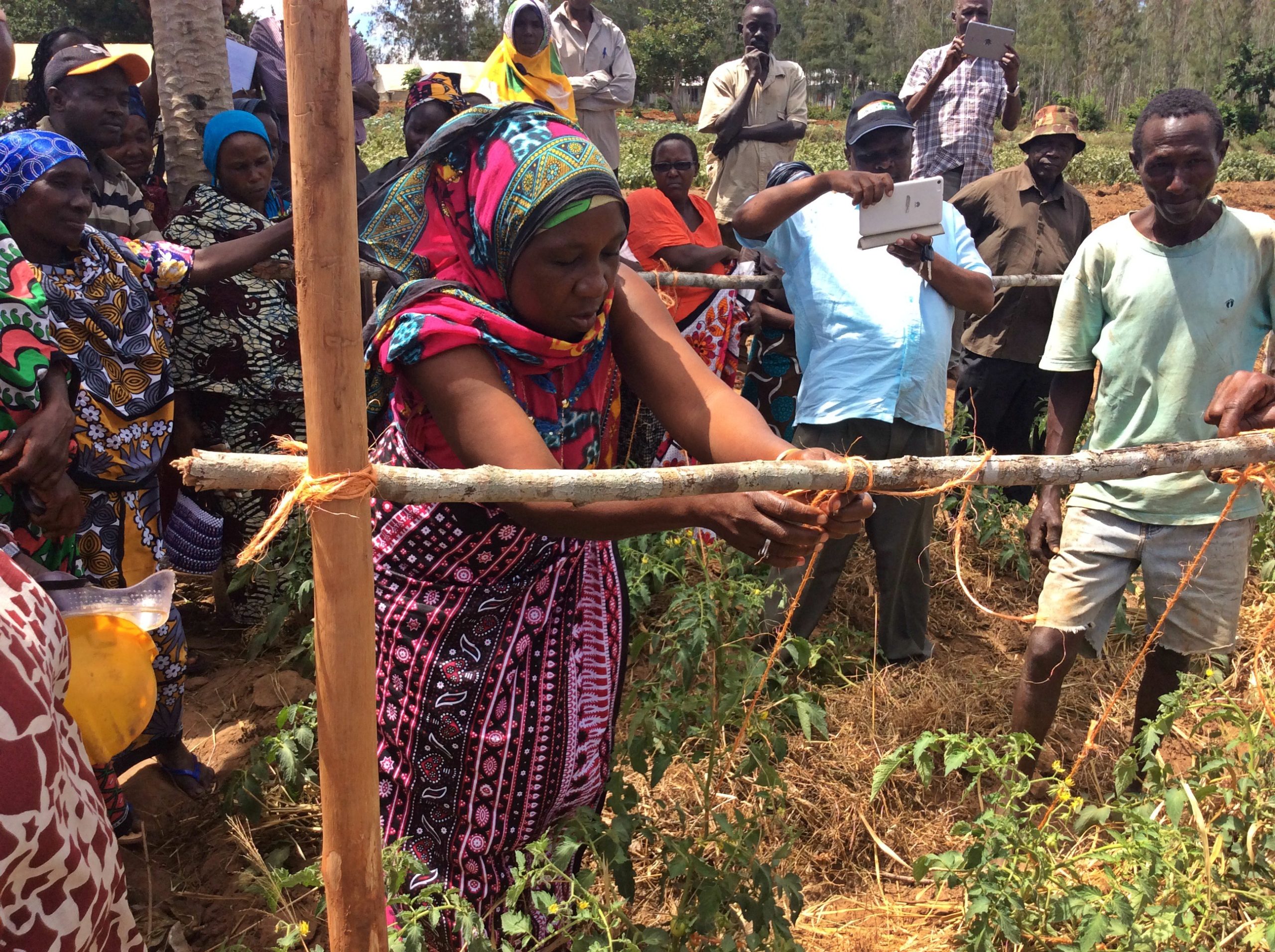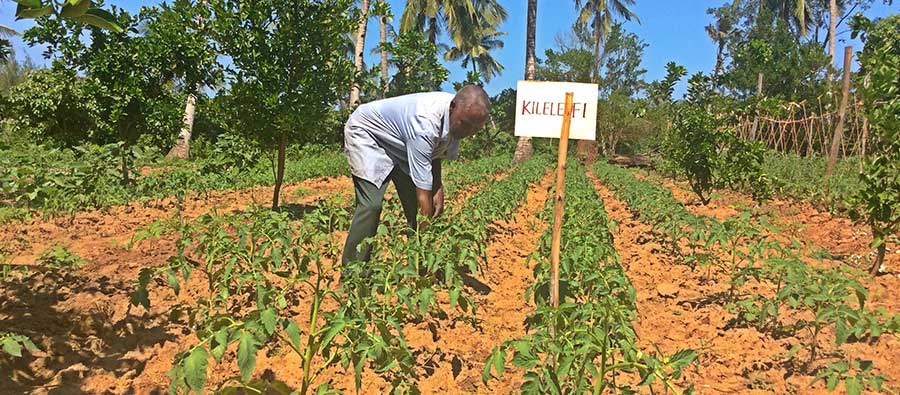On an extremely hot sunny day at the south Kenyan Coast, Kennedy Ngumbi, the CEO of Oyeska Greens, showcases his patch of Syngenta’s kilele F1 tomatoes and other drought tolerant crops including amaranth greens. These are the only crops that have survived drought and extremely hot temperatures at the Kenyan Coast. Other farmers from Mabafweni community whose crops have been decimated by the heat have been flocking to our farm to learn how they, too, can successfully grow these drought tolerant crops.
When my brother and I co-founded Oyeska Greens as a start-up agricultural company in 2014 to help drive agricultural innovation in the region, we had envisioned playing a role in reaching and teaching farmers. We had not, however, anticipated the full extent of the challenges farmers in our region would face as the climate continued to change.
And our Kenyan coast farmers are not alone. In recent months, drought has ravaged crops and resulted in massive failure of harvests in many countries across Africa . In Malawi, for example, as many as 6.5 million people are in dire need of food aid because crops have been decimated by drought.
Without adapting to climate change and finding solutions to the recurring droughts and erratic rains there is no food, and African agriculture relies almost entirely on rain.
Adapting to climate change means re-evaluating the crops farmers need to be plant and ensuring that farmers have access to all the available tools, agricultural innovations and knowledge needed to sustainably improve crop production.
Growing up in the rural Kenyan Coast, I saw firsthand issues smallholder farmers face, including the lack of knowledge on best agricultural practices. For many years, I saw my family and my neighbours lose crops to droughts, insects and pests. Due to outdated farming practices and a lack of resources, my community endured repeated cycles of poverty, an experience that inspired me to study agriculture. I graduated with a PhD in Entomology from Auburn University. Prior to obtaining my PhD, I spent two years in the State of Israel with the Agriculture Research Organization and saw the power of state-of-the-art farming methods. I knew I had to share them with my community. In 2014, we co-founded Oyeska Greens to empowering smallholder farmers with the knowledge they need to farm successfully.
Our model is simple. Before the farming season we have training sessions that focus on the crops we are going to grow. These sessions are conducted by extension officers from our partners including Kenya Agricultural Research Institute, Syngenta and TechnoServe. Once trainings are done, farmers plant the crops on their individual farms. In addition, our extension officers provide training support throughout the season. Weekly trainings focus on topics of most interest to farmers, such as composting and pesticide safety application protocols.
To date, we have worked with over 100 farmers. We have learned that growing food while adapting to climate change is not an impossible task. It takes knowing the challenges farmers face and empowering them with the tools and knowledge they need to farm successfully and to adapt their farming methods so that they can successfully grow crops.

With sustained support comes success…
One of our success stories is that of our own CEO, Kennedy. He, too, was born and raised in Mabafweni. A certified public accountant, he had ventured to the city to pursue an accounting career but the quality of life was poor. Like many young people, he did not see a future in farming and did not want to have anything to do with it. In 2014, after a lengthy discussion, I asked him to consider farming and consider being the CEO of Oyeska Greens. I shared with him the beautiful thriving garden crops I had seen while living in both Israel and the USA and repeatedly told him that he could make a beautiful career out of farming.
He agreed to give farming a try. Together with the other farmers, he learned the art of growing crops using the best practices. He practiced all what he learned. Day by day, I could see transformation happening. Season by season, I could see the changes that were happening in the farm. His crops were thriving and he was making money out of the farm. Today, two years later, he has not only succeeded in farming, but he has led the other farmers into many successes. One of the successes being the selection of the Oyeska’s Green farm by the Kwale County Government as the official host for 2016 World Food Day celebrations.
Another success story is that of Henry Mbaluka. Since joining Oyeska in 2014, he has been on an upward trajectory. He has mastered the art of growing tomatoes, bell peppers and many other crops and many farmers from the community always visit his farm to learn from him. He has over the years been able to harvest over 3000 kg of tomatoes from his farm and the best is yet to come.
These success stories and many more stories that we are witnessing in Kwale inspire us to do more. Oyeska Greens will keep working with smallholder farmers to revolutionize farming at the Kenyan Coast. We will not rest until the entire Kenyan Coast becomes an agricultural hub where greenhouse/open farming, technology, entrepreneurship, smart marketing, and climate-smart, smallholder-driven farming intersect to produce lasting change. This is the impact we are working to create.



